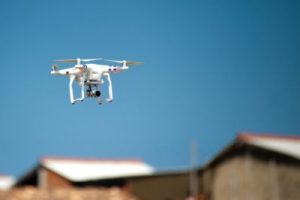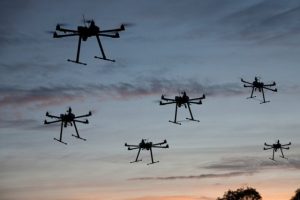8 Industries with Unique Commercial Insurance Risks
Commercial Insurance is a necessary evil that all successful businesses need. Depending upon the state and industry you operate in, your business may face different commercial insurance risks. Because of these unique commercial insurance risks, your business may need just a small amount of coverage or a substantial amount of coverage to properly cover your business. Regardless of the amount of insurance you choose, you need to make the best decision for your unique business. That can only be done with the help of an experienced insurance agent. Taking some additional time to discuss the day-to-day operations of your business can go a long way towards covering your business. Here are eight industries that have unique risks not present in most businesses.
Ridesharing Vehicles
As Ridesharing Companies have grown in popularity, insurance carriers have expanded their offerings to meet the demand for coverage. Normally, rideshare insurance covers personal use and has an add-on for part of the time drivers are signed in to a ridesharing app. The coverage has many grey areas, because of the newness of the profession. Partnering with an experienced insurance agent is highly advised and do not rely solely on the coverage offered by the companies.
Hotel Motel Industry
As with any business in the Hotel Motel Industry, businesses face many risks that can damage the company if not properly prepared for. Depending on all the offerings of your location, there may be a substantial difference in the types of insurance you need. If you offer a restaurant, there will be specific commercial insurance risks associated with that area of the operation. If that restaurant serves alcohol, there are additional risks. It is important for a hotel owner to be prepared for all commercial insurance risks that may arise.
Lawncare & Landscaping
Commercial Insurance Risks in the Lawncare & Landscaping Industry arise from installation, service, and attractive nuisance at the job site. Depending upon the specifics of your operation, work hazards may include injury or damage from debris thrown by power mowers, trimmers, and other equipment. The application of lawn chemicals presents additional commercial insurance risks. Contractors who do not obtain and keep proper licensing and certification for chemical applications create a serious liability exposure to themselves.
Non-Profit
Professionals who work in the Non-Profit Industry, for the most part, go in to this sector to be a part of something greater than themselves. Most do not anticipate having to manage risk or buy insurance. Interacting with volunteers, part-time employees, donors and at-risk populations brings extremely unique risks to non-profit associations. How effectively a non-profit organization handles commercial insurance risks, will contribute immensely to the success or failure of your organization.
Auto Repair Shops
Auto Repair Shops are different from many other industries because of what they do and what they sell. Some shops only perform oil changes, while other shops do most mechanical work on any vehicle. Other shops might work on niche specific cars and some may even offer retail offerings. Each type of business has its own risks included. Taking additional time to speak long and honestly with an experienced insurance agent is the best way to determine what types and how much insurance your business needs.
Commercial Cleaning
Commercial Cleaning Companies have less premises liability because a majority of their work is performed at a remote site. Damage to the clients property is high in this industry as is the risk of employee theft. Wet and slippery floors can add to the risk of slips trips and falls. Securing the work site during and after the work is completed is a huge risk for commercial cleaning companies. High turnover among employees in this industry adds to this industry.
Construction Industry
The Construction Industry is a common industry that employs people throughout the country, bit the size and scope of each individual business can bring immensely different risks to businesses within this industry. A family operation that builds starter homes in a rural town may face different risks than a large construction company that works building high rise apartments in major cities. Whether the employees are W2 or 1099 can complicate the risks the business faces. The only way to know for certain if your business is covered to your specifications is to partner with an experienced independent insurance agent.
Day Care Center
A Day Care Center, like many industries, have very unique risks. If there is playground equipment at the location, the equipment should be maintained periodically and that maintenance should be documented. Because the nature of the work forces the employees to work near children who do not have strong immune symptoms, cold and flu are common. Proper hygiene is a must to limit the amount of liability to the children and your employees.
Most businesses in this industry operate at one location, but some smaller operations will operate out of a private residence. State laws determine what types of coverage each business is required to carry. In most cases general liability and workers compensation is the bare minimum a day care center can operate with. In most cases, the business will need additional coverage. Partnering with an experienced agent is the only way to know if you are fully covered.



